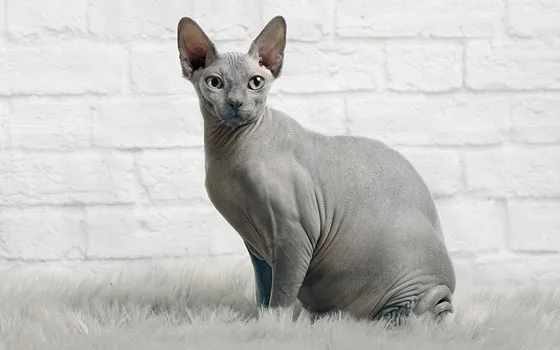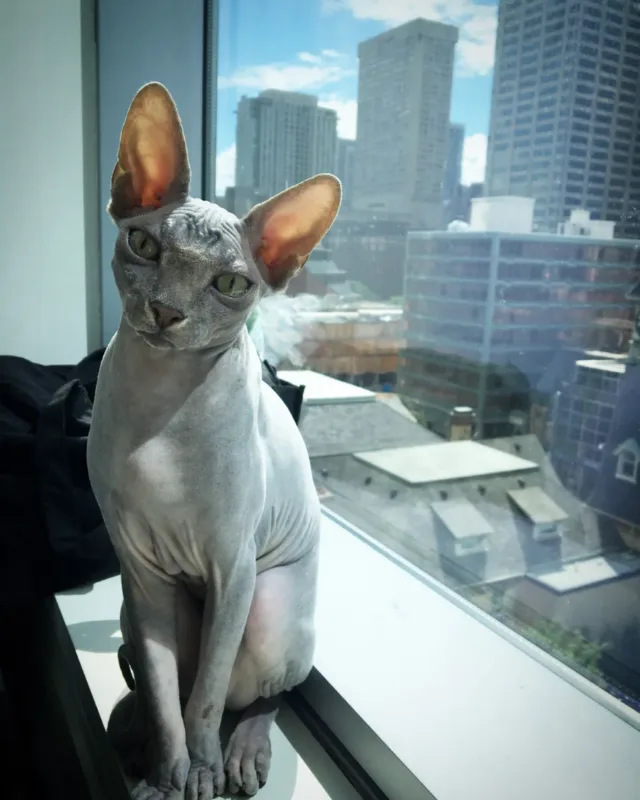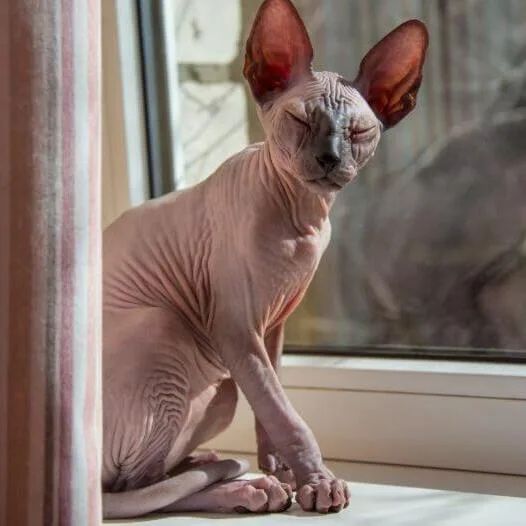Sphinx Cats
Sphinx cats, also known as Sphynx, are a unique and intriguing breed known for their hairless bodies and large ears. Despite their unusual appearance, Sphinx cats are friendly, affectionate, and intelligent companions that have captured the hearts of cat lovers worldwide.
This blog post will provide an in-depth look at the Sphinx cat breed, including their history, characteristics, and care requirements. By the end of this post, readers will have a comprehensive understanding of the Sphinx breed and what it takes to care for these captivating creatures
History and Origin of the Sphinx Cat Breed
The Sphinx cat, also known as the Canadian Sphinx, is a unique and fascinating breed with a hairless coat and large ears. In this post, we’ll explore the history and origin of this breed, including the role of Canadian breeder Micaela Bastien in its development.
Origins of the Sphinx Cat Breed
Contrary to popular belief, the Sphinx cat is not actually from Egypt, but rather from Toronto, Canada. The breed was first developed in the 1960s, when a hairless kitten was born to a domestic cat litter. The kitten was named Prune, and became the first Sphinx cat in recorded history.
However, it wasn’t until Micaela Bastien started breeding Sphinx cats in the 1970s that the breed really began to take off. Bastien worked tirelessly to develop a breeding program that produced healthy, robust kittens with the signature hairless coat and distinct look that we associate with the breed today.
Recognition and Popularity
The Sphinx cat was first recognized as a breed by The International Cat Association (TICA) in 1985, and has since been recognized by other cat organizations such as the Cat Fanciers’ Association (CFA) and the Canadian Cat Association (CCA). Today, the Sphinx cat is a popular breed with cat enthusiasts all over the world.
For more information on the history and origin of the Sphinx cat, as well as breed standards and other important information, check out the following links:
Physical Characteristics
The Sphinx cat breed is easily recognizable for its unique physical features. One of the most notable characteristics of the Sphinx is its hairlessness, which is a result of a natural genetic mutation.
The Sphinx’s skin is wrinkled, which gives it a unique texture that is different from other cat breeds. The skin of a Sphinx can be compared to a soft suede material. Despite their hairlessness, Sphinx cats still come in a wide variety of colors and patterns, such as white, black, blue, cream, and tabby. Some Sphinx cats even have different colored eyes, adding to their unique appearance.
Since Sphinx cats do not have fur, they require minimal grooming. However, they do require frequent baths to remove any oils or dirt that may build up on their skin. Additionally, it is important to keep their ears and nails clean to prevent any infections. While Sphinx cats may not require traditional grooming, it is important to maintain their skin health by keeping them out of direct sunlight and using lotions or balms to prevent dryness.
Personality and Behavior
Sphinx cats are known for their friendly and affectionate nature, and are often described as “extremely friendly” cats. They are highly sociable and love to be around people, often following their owners from room to room.
These cats are also highly energetic and love to play, so it’s important for owners to provide them with plenty of toys and playtime. They are intelligent and enjoy being challenged with puzzles and games.
Sphinx cats are highly adaptable and can adjust well to different environments and situations. They are good with other pets and children, but it’s important to socialize them from a young age to ensure they are comfortable with new experiences.
Due to their lack of hair, Sphinx cats may be more sensitive to temperature changes and may seek out warm places to cuddle. They also require regular skin care, such as weekly baths to remove excess oils and prevent skin irritation. However, they do not require grooming for their fur, making them a good choice for those with allergies.
Overall, Sphinx cats make wonderful and loving companions for those who are willing to give them the attention and care they need.
Personality and Behavior
Sphinx cats are known for their friendly and affectionate nature, and are often described as “extremely friendly” cats. They are highly sociable and love to be around people, often following their owners from room to room.
These cats are also highly energetic and love to play, so it’s important for owners to provide them with plenty of toys and playtime. They are intelligent and enjoy being challenged with puzzles and games.
Sphinx cats are highly adaptable and can adjust well to different environments and situations. They are good with other pets and children, but it’s important to socialize them from a young age to ensure they are comfortable with new experiences.
Due to their lack of hair, Sphinx cats may be more sensitive to temperature changes and may seek out warm places to cuddle. They also require regular skin care, such as weekly baths to remove excess oils and prevent skin irritation. However, they do not require grooming for their fur, making them a good choice for those with allergies.
Overall, Sphinx cats make wonderful and loving companions for those who are willing to give them the attention and care they need.
Adoption and Ownership
Adopting a Sphinx cat requires careful consideration and planning. Here are some key points to keep in mind:
Finding a Reputable Breeder or Rescue Organization
It’s important to you get it from Us a reputable breeder when looking to adopt a Sphinx cat. We good breeder will provide health guarantees and we are willing to answer any questions you have about the breed. Rescue organizations can also be a great option, as they often have adult cats available for adoption and can provide information about the cat’s personality and health.
Responsibilities of Ownership
Owning a Sphinx cat comes with certain responsibilities. These cats require a warm and safe environment, as they can get cold easily due to their lack of fur. They also need regular veterinary check-ups and proper nutrition to maintain their health. It’s important to be prepared for the long-term commitment of owning a Sphinx cat, as they can live for up to 15 years or more.
adopting a Sphinx cat can be a wonderful experience for the right person or family. With their affectionate nature and unique physical characteristics, these cats make great pets for those willing to provide the proper care and attention.




